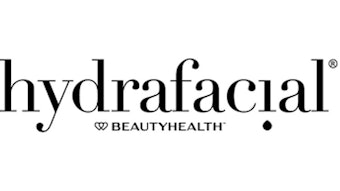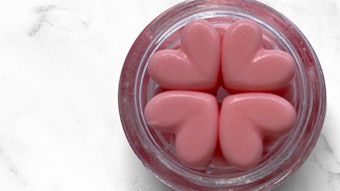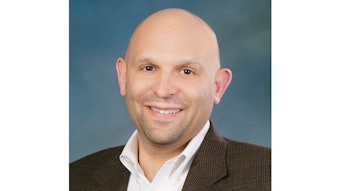Back to the June issue
Hard numbers are difficult to come by for the market value of outsourced beauty care, but it’s tough to argue with the impact that the global antiaging skin care boom has had on the beauty industry and on its contract manufacturers. According to Euromonitor, the global skin care market reached $65 billion in 2007, growing by 7% from 2006. Continued consumer interest came from a wide range of innovative antiaging products. In 2001, the global skin care business was valued at $31 billion, and the story was about the addition of actives such as AHAs and BHAs.
“Skin care went off the charts around 2000–2001. It kind of exploded,” says Gus Bezas, president, global strategic development, Milbar Labs. After that came the emergence of the physician brands. “Then,” he says, “the giants were trying to replicate the doctor brands.” Milbar is one leaf of a business trefoil that started 27 years ago with Dermatologic Cosmetic Laboratories. The company, located in East Haven, Connecticut, includes Milbar Labs, which develops a range of products that are selling in 14 channels of distribution, including nutritional stores and M Lab, a branded skin care line now sold at Harrods in London and online. Bezas believes it was the long history of Dermatologic Cosmetic Laboratories as a niche skin care specialist that brought the big firms its way. He says he started to see the spike five years ago when, as he says, “multibillion dollar global giants and others would come to us to outsource specific products with regard to skin care. For us, it’s become a trend.”
Bezas got his own start in the beauty industry at Estée Lauder at a time when the company was not doing any outsourcing. He later worked for cosmetics pencil manufacturer Faber Castell, where business is all about outsourcing. “Cosmetic companies just don’t make their own pencils, but skin care is different,” he says. Today, outsourcing skin care product manufacturing comes to them in one of two ways—from larger cosmetics companies with R&D that outsource certain types of projects and from those without R&D who outsource everything.
Outsourcing is certainly not a new concept, and has in fact been quite common in information technology for many years. But R&D for manufacturing is on the rise. According to a 2007 reader survey by the editors of R&D magazine, the number one reason for choosing to outsource R&D was the greater expertise of the external organization.
Mixing It Up
For Milbar, skin care really kicked up its outsourcing business. Bezas believes the skin care brands knew of his firm’s 20-year history of creating products for dermatologists and plastic surgeons, and that they gravitated toward that experience. “We’re very niche-oriented as a cosmeceutical developer, so we make products that have a meaningful benefit to the skin,” Bezas says.
For other personal care contract manufacturers, the road to success is not as niche-oriented, but they are still feeling the impact of the growth in antiaging skin care the past eight years.
GDMI, Inc. is a contract manufacturer of skin, hair, health and body care products for human and animal markets, based in Garland, Texas. “Our customer base is quite varied, so we’ve always had a solid mix of skin care with hair, health and body care products,” says Gina Ferrall, vice president and COO, GDMI, Inc. “Even still, we’ve had to evolve to meet the needs of customers wanting to differentiate their brands. The effect on our business has been a result of the faster-paced need to continually offer new, natural, organic, high-tech and exotic ingredients and formulas.”
Ferrall says that to broaden GDMI’s abilities to create the “new and efficacious” products its customers now demand, the firm expanded the breadth and depth of new raw materials it uses; sought collaboration with suppliers to be able to source and supply new ingredients from around the world; and deepened its understanding of how ingredients interact with skin structure and function.
While Milbar elected to create its own brand in M Lab, GDMI chose to concentrate on formula development and manufacturing services for others. “Although a more narrow focus and the potential margins for in-house brands can be alluring, we’ve maintained this direction as a result of acquiring attractive manufacturing accounts that felt in-house brands created a conflict of interest for allocating resources and production scheduling,” says Ferrall. “We also felt it would dilute our expertise, so we’ve simply chosen to maintain focus on custom formula development and manufacturing.”
Pace Brings Pressure
The pressures of the fast-paced skin care market, including rapidly changing ingredient technologies and the uptick in cosmetic procedures, suggest to Ferrall that, “there’s tremendous pressure for manufacturers and distributors to differentiate their brands, broaden their market presence and deliver ‘surgical results’ nonsurgically.” She believes these pressures, “present ethical and legal conflicts as to how to develop and market medical results with cosmetic products,” and suggests that, “recent FDA seizures for alleged drug utilization in cosmetics suggest that some marketers are feeling the intense pressure to differentiate their brands, causing them to take greater risks with new ingredients.”
The trend toward natural materials brings pressures and challenges of its own. For Ferrall, the greatest challenge is that “companies and consumers don’t always understand that ‘natural’ (her emphasis) formulas do not always feel and perform the same as ‘traditional’ formulas.” As a result, she says, formula development can be more time-consuming and challenging, and may require educating the marketer. This can result in increased development time, a situation that runs counter to a key feature of outsourcing—increased speed to market.
The demand for natural ingredients and claims isn’t all bad, though, and Ferrall says her company and others “are finding many opportunities to use a vast array of new ingredients in ‘underdeveloped’ markets with entrepreneurial companies.” She says the big companies, “provide coverage and education to the general consumer, and this trickles down exponentially to the smaller companies that operate in many different markets. While there’s also a lot of misinformation that follows, which can complicate the development process, we’ve still found many opportunities to exploit natural and high-tech ingredients in somewhat nontraditional markets.”
Bezas also is looking very seriously at the trend toward natural ingredients, seeking another edge for his company by obtaining organic certification. “We’re looking at that category very seriously,” says Bezas. “We’ll be able to use the USDA organic seal.” He expects that certification sometime this summer.
In the meantime, Bezas is watching with excitement the movement of cosmeceutical facial skin care into body care. “When you talk about cosmeceutical development, of course you’re talking about the face. Body care is a category that wasn’t really there a year ago,” he says. “That has opened up. It’s all antiaging.”
Bezas also believes that today everything is driven by innovation, and his firm has created an edge for itself by creating exclusive relationships with a number of raw material manufacturers for exclusivity on certain raw materials. “It gives you a leg up,” he says. “Innovation and technology are the only way to compete.”
Alternatively, says Bezas, a contract manufacturer has to look for certain kinds of projects to go after—to choose whether to serve the commodity type products or to specialize.
The Outsourcing Future
For the future, Bezas sees outsourcing becoming an even bigger piece of the beauty business. He says the regulatory burden alone is enough to drive brand owners to let others do their manufacturing. “Speed to market is critical.”
Back to the June issue










